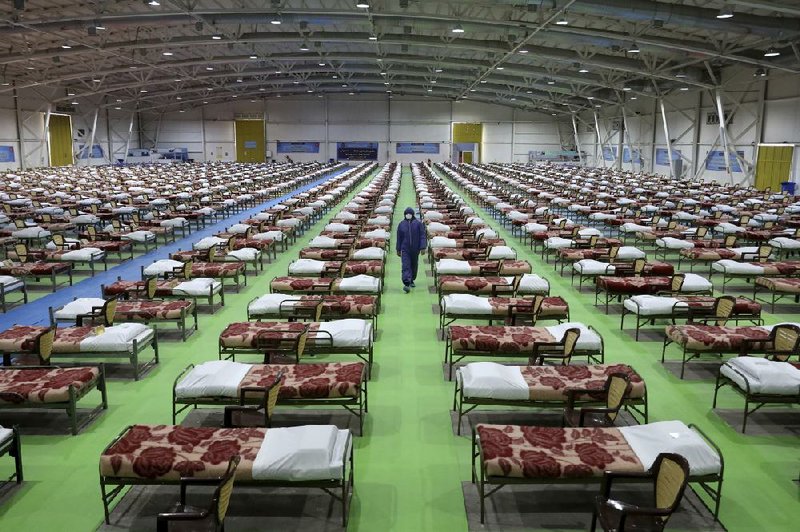TEHRAN, Iran -- Standing over the still body of an intubated 5-year-old boy wearing nothing but a plastic diaper, an Iranian health care worker in a hazmat suit and mask begged the public for just one thing: Stop drinking industrial alcohol over fears about the new coronavirus.
The boy, now blind after his parents gave him toxic methanol in the mistaken belief that it protects against the virus, is just one of hundreds of victims of an epidemic inside the pandemic now gripping Iran.
Iranian media report nearly 300 people have been killed and more than 1,000 sickened by ingesting methanol across the Islamic Republic, where drinking alcohol is banned and where those who do rely on bootleggers. An Iranian doctor helping the country's Health Ministry told The Associated Press on Friday the problem was even greater, giving a death toll of about 480 with 2,850 people sickened.
The poisonings come as fake remedies spread across social media in Iran, where people remain deeply suspicious of the government after it downplayed the crisis for days before it overwhelmed the country.
[CORONAVIRUS: Click here for our complete coverage » arkansasonline.com/coronavirus]
"Other countries have only one problem, which is the new coronavirus pandemic. But we are fighting on two fronts here," said Dr. Hossein Hassanian, an adviser to Iran's Health Ministry who gave the higher figures to the AP. "We have to both cure the people with alcohol poisoning and also fight the coronavirus."
For most people, the new coronavirus causes mild or moderate symptoms, such as fever and cough that clear up in two to three weeks. For some, especially older adults and people with existing health problems, it can cause more severe illness, including pneumonia, or death.
The pandemic has swept across the world, overwhelming hospitals, crippling economies and forcing governments to restrict the movements of billions of people. Particularly hard hit has been Iran, home to 80 million people.
There is no known cure for covid-19, the illness caused by the virus. Scientists and doctors continue to study the virus and search for effective medicines and a vaccine.
But in messages forwarded and forwarded again, Iranian social media accounts in Farsi falsely suggested that a British schoolteacher and others cured themselves of the coronavirus with whiskey and honey, based on a tabloid story from early February. Mixed with messages about the use of alcohol-based hand sanitizers, some wrongly believed drinking high-proof alcohol would kill the virus in their bodies.
The Islamic Republic has reported more than 32,000 confirmed cases and more than 2,300 deaths from the virus, the highest toll of any country in the Middle East. International experts also fear Iran may be under-reporting its cases, as officials for days played down the crisis ahead of a parliamentary election.
In Iran, the government mandates that manufacturers of toxic methanol add an artificial color to their products so the public can tell it apart from ethanol, the kind of alcohol that can be used in cleaning wounds. Ethanol is also the kind of alcohol found in alcoholic beverages, though its production is illegal in Iran.
Some bootleggers in Iran use methanol, adding a splash of bleach to mask the added color before selling it as drinkable. Sometimes it is mixed with consumable alcohol to stretch supply, other times it comes as methanol falsely advertised as drinkable. Methanol also can contaminate traditionally fermented alcohol.
Methanol cannot be smelled or tasted in drinks. It causes delayed organ and brain damage. Symptoms include chest pain, nausea, hyperventilation, blindness and coma.
Hassanian said his poisoning figures included reports from coroner's offices around Iran also counting those who died outside of hospitals.
"Unfortunately in some provinces, including Khuzestan and Fars, deaths from drinking methanol has exceeded the number of deaths from the new coronavirus," he said.
Muslim drinkers in Iran can be punished with cash fines and 80 lashes. However, minority Christians, Jews and Zoroastrians can drink alcoholic beverages in private.
Information for this article was contributed by Mehdi Fattahi and Sopheng Cheang of The Associated Press.
A Section on 03/28/2020
